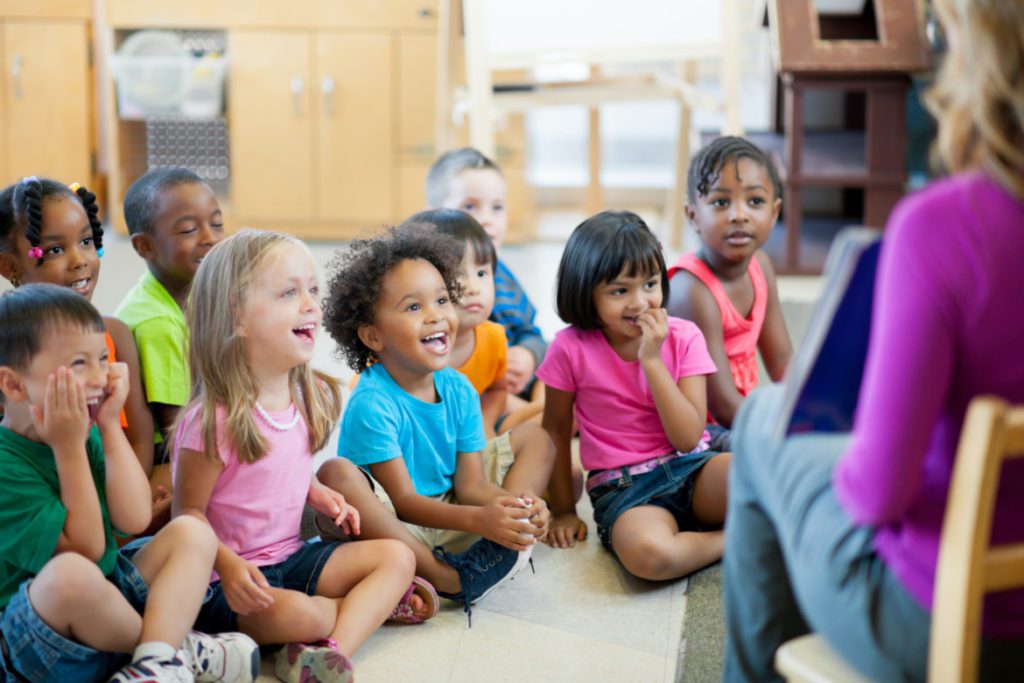The Boston Pre-K Study: A Strong Case for Preschool Gets Stronger


In a recent paper, “The Long-Term Effects of Universal Preschool in Boston,” researchers share their latest findings on a study of a large-scale public preschool program in Boston, MA.1 The paper is getting a lot of feedback from the early childhood community, and rightfully so. It both confirms the importance of preschool for young children and expands on what makes it valuable and necessary.
Before the current study, others have shown the benefits of high-quality preschool include helping more children be prepared for kindergarten and develop the social–emotional skills they will need for life. Those two things—kindergarten readiness and social-emotional development—are not always talked about as mutually beneficial. But they absolutely are! In the current study, both the short-term benefits (e.g., degrees of educational attainment) and long-term benefits (e.g., behavioral outcomes) of preschool are detailed. Here are three key takeaways.
Funding Is Critical
One of the most important, perhaps least discussed (including minimally in the paper) part of the Boston pre-K study, is the significant funding that has been invested in Boston’s 4-year-olds. For the 2021-2022 school year, the amount is $15 million, paid by the City of Boston and its Mayor’s Office. This funding has created ways for Boston Public Schools to meet the expectations of the city’s definition of high-quality pre-K. The Boston Public Schools Department of Early Childhood2 provides this definition of high-quality.
- “All pre-k teachers have a degree in early childhood education and are prepared to teach in classroom settings to support students of all backgrounds and needs.
- Teachers receive ongoing professional development throughout the year to enhance their teaching.
- Expert coaches provide ongoing support to teachers.
- Students learn from the Boston Public Schools Focus on K1 Curriculum and Building Blocks Curriculum, which are national models in early childhood education.
- All classroom environments are age-appropriate and culturally responsive.
- Small classrooms with 2 educators for 20 students.
- Nationally accredited by the National Association for the Education of Young Children (NAEYC).
- Each community early learning center has a Parent Engagement Coordinator available to provide support to families to meet their individual needs.”
Scientifically Sound Study
The current study is important because it is the first to provide evidence from a randomized research design on the long-term effects of a large-scale preschool program. This type of research design deepens the robustness of the data, as previous randomized studies were on small-scale programs or on short-term outcomes. Reconnecting to and analyzing the data over time (in this case, over multiple decades) is one way to evaluate the lasting effects of preschool.
Positive Long-Term Effects of Preschool
While the current study indicates preschool didn’t have an impact on test scores for children, it does underscore the positive long-term impacts on educational attainment and life outcomes. Positive effects include increased college enrollment and persistence, grade progression and high school graduation, and decreased negative behavioral outcomes like suspension and juvenile incarceration. These results stress the importance of considering non-test score and long-term outcomes when assessing the effectiveness of early childhood education programs.
In one of our summer webinars for school and program leaders, A Rigorous Commitment to Social–Emotional Well-Being, I was joined by Breeyn Mack, our Vice President of Education, to have a robust discussion on other takeaways from the Boston pre-K study and its implications for leaders of high-quality early learning programs. We will focus our conversation on the parallel processes of program leaders supporting teachers’ well-being as teachers support children’s well-being and the benefits to be had by all. At the end, we will discuss creating an action plan for making a committed investment in supporting social–emotional development.
Watch our summer webinar, “A Rigorous Commitment to Social-Emotional Wellbeing” to learn more about meaningful ways to incorporate social-emotional development into your curriculum.
1. Boston Public Schools Department of Early Childhood. (n.d.). Boston universal pre-K. Retrieved June 9, 2021, from https://www.bpsearlylearning.org/boston-upk